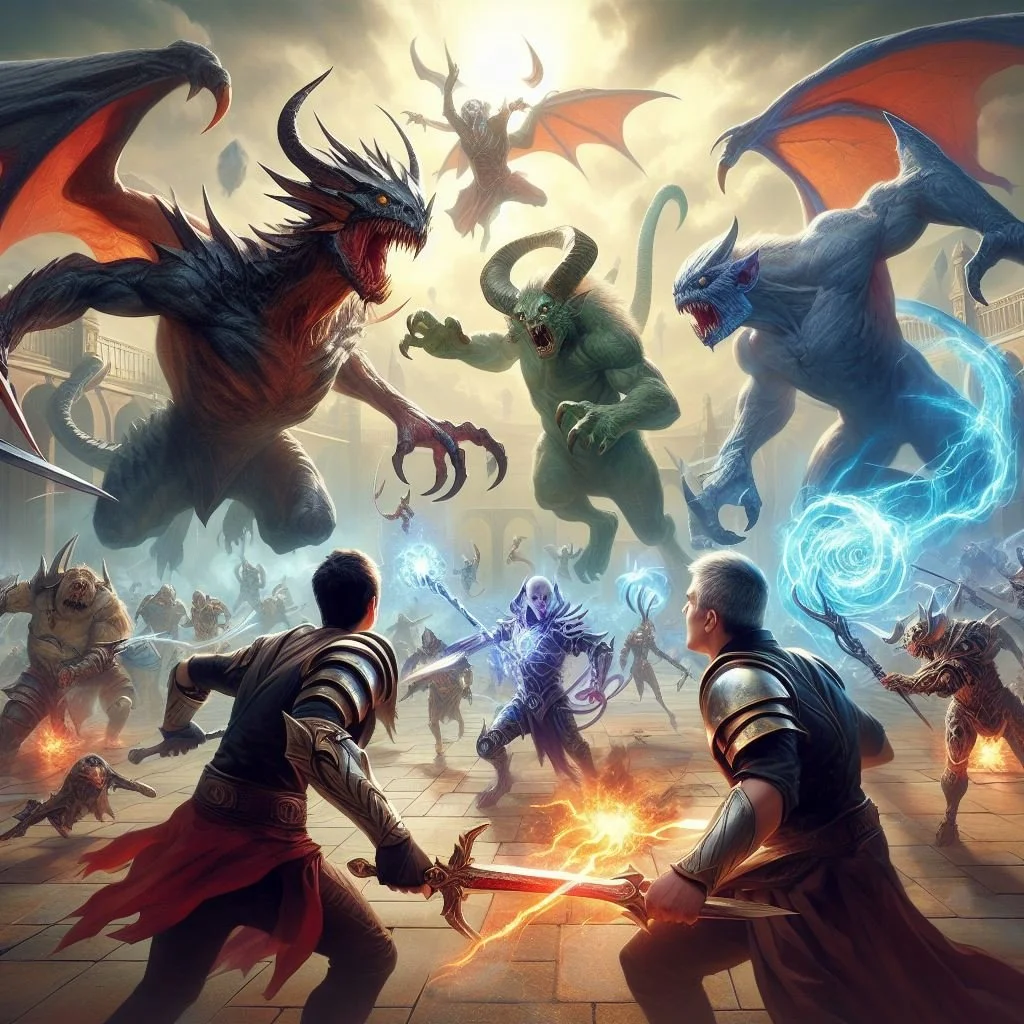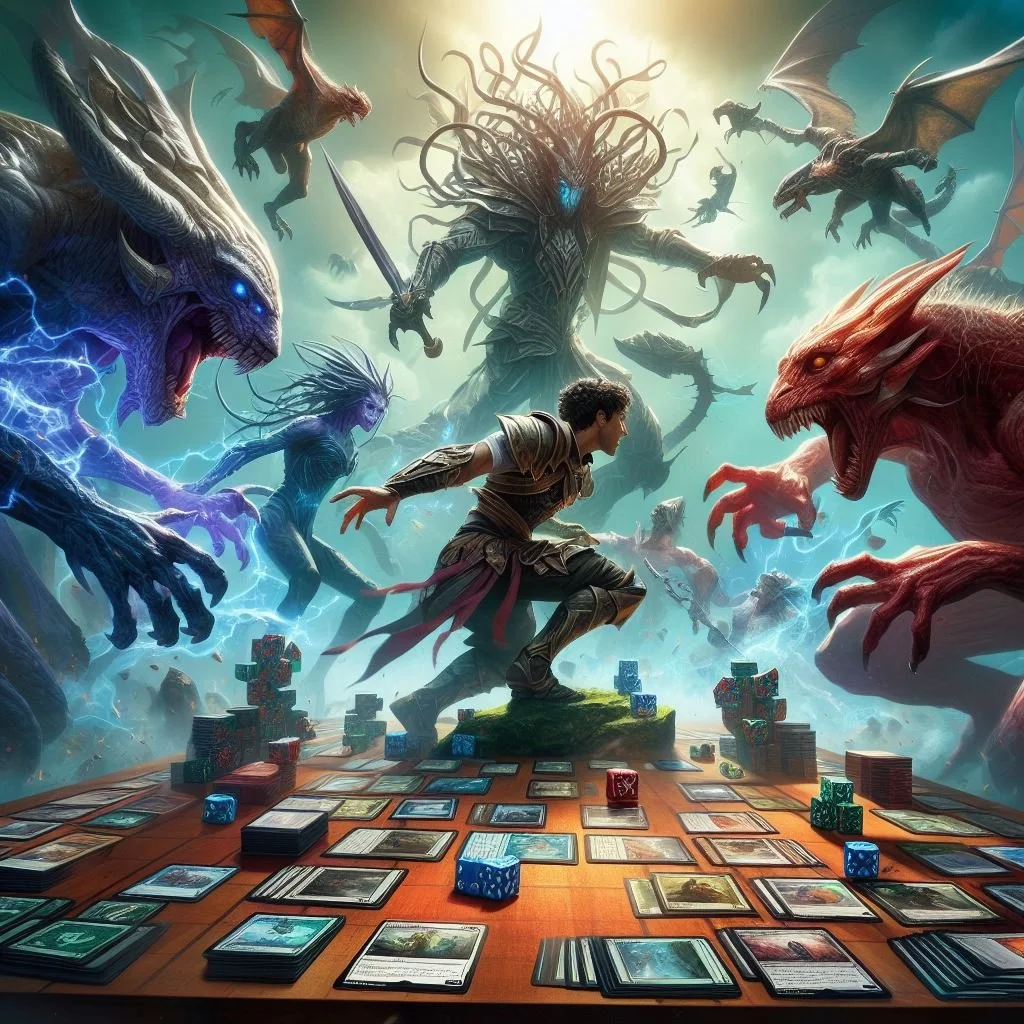How to Get Better at Constructed in MTG Arena
Constructed play in MTG Arena offers a thrilling arena for Magic enthusiasts to showcase their deck-building prowess and strategic gameplay. Unlike drafting, where you build a deck on the fly, Constructed allows for deeper strategy with a stable deck that you can refine and adapt over time. Here are some strategies and insights aimed at boosting your performance in MTG Arena's Constructed formats.
Understand the Meta
The first step to mastering Constructed is to have a solid grasp of the current meta. This involves knowing which decks are dominating the play environment and why. Websites like MTGGoldfish and ChannelFireball are excellent resources for staying updated on popular decks and emerging trends.
Building Your Deck
Choose Your Strategy: Decide early on if you want to play Aggro, Control, Midrange, or Combo. Your choice will dictate your deck's structure and how you approach matches.
Curve and Composition: A well-balanced mana curve and a good mix of creatures, spells, and other permanents are crucial. Ensure your deck can operate efficiently at each stage of the game.
Adaptability: Include cards that can handle a variety of situations. Flexibility can be the difference between winning and losing in an ever-changing meta.
Playtesting and Refinement
Playtest Rigorously: The more you play, the better you'll understand your deck's strengths and weaknesses. Use casual play modes or direct challenges with friends to test out new ideas.
Iterate Your Deck: Based on your playtesting results, make adjustments to your deck. This could mean swapping cards in and out or tweaking your mana base for better consistency.
Learn from Losses: Every defeat is an opportunity to learn. Analyze your losses to understand if they resulted from poor deck construction, bad luck, or gameplay mistakes.
Advanced Gameplay Strategies
Know Your Opponent: Learn the ins and outs of popular decks in the meta. Anticipating your opponent's moves allows you to play more proactively or defensively as needed.
Manage Resources Wisely: Be mindful of your life total, hand, deck, and battlefield. Knowing when to trade resources or when to hold back can significantly impact the game's outcome.
Timing is Everything: The difference between a good player and a great player often comes down to timing. Knowing when to play your cards and when to wait can catch your opponent off-guard and swing the game in your favor.
Continuous Learning
Stay Informed: The meta can shift with new set releases or balance changes. Keep abreast of these changes and how they might affect your deck and strategy.
Watch and Learn: Streamers and pro players often share valuable insights through their gameplay. Watching them can provide you with new perspectives and strategies you hadn't considered.
Engage with the Community: Participate in forums, Discord servers, and subreddit discussions. The community can be a great resource for feedback, deck ideas, and strategies.
Advanced Strategies for Improving at MTG Constructed
Leveraging the Sideboard
In best-of-three (Bo3) matches, the sideboard becomes an essential tool for adapting your strategy between games.
Strategic Sideboarding: Tailor your sideboard to counter the most prevalent decks in the meta. Include cards that can turn the tide in matchups where your deck struggles.
Dynamic Sideboarding: Be ready to change your sideboarding strategy based on the evolution of the meta or the decks you're facing most often.
Understanding Matchup Dynamics
Role Assignment: In each matchup, determine whether you're the beatdown (aggressor) or the control (defender). This understanding should dictate your playstyle and decision-making for that game.
Matchup Knowledge: Deeply study how your deck matches up against others in the meta. Knowing the ins and outs of each matchup allows you to make more informed decisions during play.
Advanced Mulligan Strategies
Strategic Mulligans: Learning when to keep a hand and when to mulligan based on your matchup and your role in that matchup is critical. Sometimes, a risky keep can pay off in matchups where specific cards are key.
The London Mulligan: Use the London Mulligan rule to your advantage by aggressively mulliganing for a more cohesive or powerful starting hand, especially if your deck relies on synergy or early momentum.
Tech Cards and Flex Slots
Incorporating Tech Cards: Tech cards are specialized cards included in a deck or sideboard to improve specific matchups. Carefully select tech cards that address weaknesses in your deck or exploit vulnerabilities in the meta.
Flex Slots: Identify which cards in your deck are flex slots—cards that can be swapped out without disrupting your core strategy. These slots can be adjusted based on meta shifts or personal playstyle preferences.
Psychological Play and Bluffing
Bluffing: Use bluffing to your advantage by holding back cards or mana to imply you have responses or threats you don't actually possess, potentially influencing your opponent's plays.
Reading Your Opponent: Develop the ability to read your opponent's potential plays based on their mana tapping, pauses, and previously played cards. This skill can guide your strategic decisions throughout the match.
Optimization of Play Sequences
Play Sequencing: The order in which you play your lands, creatures, and spells can have a significant impact on the game. Plan your turns in advance, considering how different sequences might prompt reactions from your opponent.
Maximizing Efficiency: Always look for the most mana-efficient play each turn, but also consider how your current play will affect your options in future turns.
Continuous Improvement
Replay Analysis: Use tools that allow you to review past games to identify misplays or overlooked opportunities. Analyzing your gameplay can reveal patterns or habits that need adjustment.
Adapting to Change: The Constructed meta is always evolving. Stay adaptable, and be willing to overhaul your deck or try new strategies as new sets are released or as the meta shifts.
Expert Strategies for Getting Better at MTG Constructed
Mastery of the Stack
Stack Interaction: Becoming adept at manipulating the stack allows you to maximize the potential of your spells and abilities. Understanding the rules of priority and how different types of spells interact on the stack can give you a significant advantage in complex board states.
Predictive Plays: Anticipate your opponent's moves and prepare your responses accordingly. This foresight enables you to construct scenarios on the stack that are favorable to you, effectively countering your opponent's strategies.
Deck Tuning and Meta Prediction
Micro Adjustments: Learn to make small, impactful adjustments to your deck based on subtle shifts in the meta. Even a single card change can significantly improve your win rate against prevalent decks.
Meta Prediction: Develop the skill to predict future meta shifts, allowing you to stay ahead of trends. This involves analyzing tournament outcomes, new set releases, and balance changes for their potential impact on the competitive landscape.
Psychological Warfare
Misdirection: Use your gameplay and demeanor to mislead your opponent about your hand or strategy. This could involve playing lands or spells in a way that suggests a different game plan, leading your opponent to make suboptimal plays.
Pressure Management: Apply pressure through gameplay decisions to force your opponent into making mistakes. This can involve aggressive plays that make them defensive or setting traps they're likely to fall into.
Resource Optimization
Mana Efficiency and Flexibility: Beyond just spending all your mana each turn, consider how you can remain flexible to react to your opponent's plays. Sometimes, saving mana for instant-speed responses is more valuable than deploying another threat.
Card Advantage and Selection: Prioritize cards and plays that offer you more options and resources over those that are narrowly powerful. Techniques like scrying, drawing, and filtering let you sift through your deck for the best responses and threats.
Advanced Board Management
Threat Assessment: Become proficient in assessing which threats on the board need immediate answers and which can be ignored for the time being. This discernment prevents wasteful use of resources and keeps pressure on your opponent.
Control of the Tempo: Dictate the pace of the game through your plays. Decide when to slow down the game to set up for a powerful late-game or when to accelerate the pace to overwhelm your opponent before they can execute their strategy.
Endgame Strategy
Win Conditions: Clearly understand your deck's primary and secondary win conditions. Always have a path to victory in mind, and adapt your strategy to achieve these conditions based on how the game unfolds.
Counterplay and Adaptation: Develop strategies to counter your opponent's win conditions. This might involve tech choices in your main deck or sideboard specifically designed to disrupt popular strategies you expect to face.
In-Depth Game Analysis
Post-Game Review: Utilize tools and replays to conduct post-game analyses, focusing on critical turns where the game's outcome was influenced. Identify alternative plays and understand their potential impact.
Meta Game Analysis: Engage in broader analysis beyond your own games, studying tournament results, decklist trends, and meta shifts to refine your strategies and anticipate future developments.
You’ve got this!
Reaching an expert level in Constructed play requires a blend of technical skill, deep strategic understanding, and psychological insight. By incorporating these advanced and expert strategies into your gameplay, you position yourself not just as a player but as a formidable strategist in the world of MTG Arena. Embrace the complexity, commit to ongoing improvement, and enjoy the journey to becoming a master of Constructed play.



